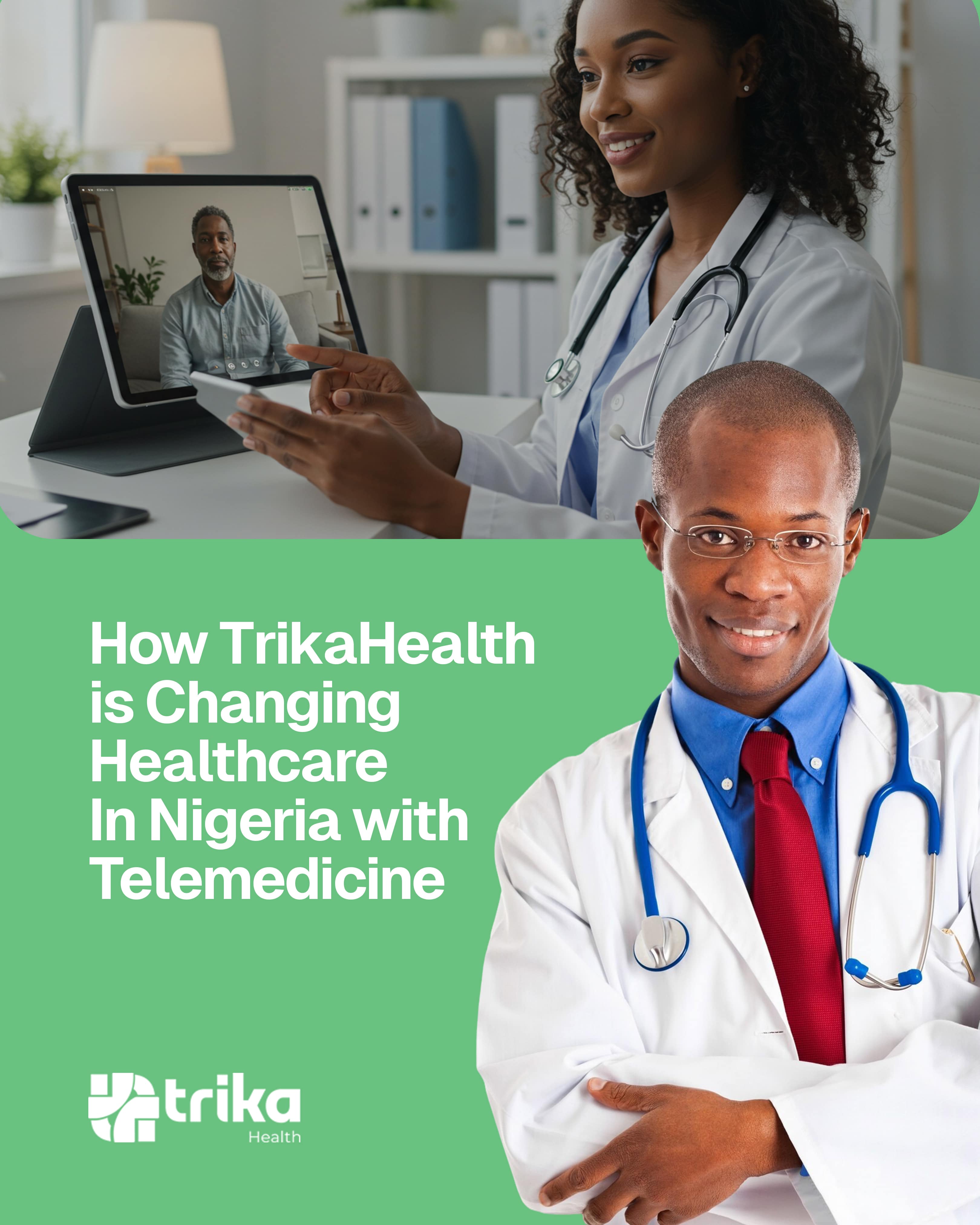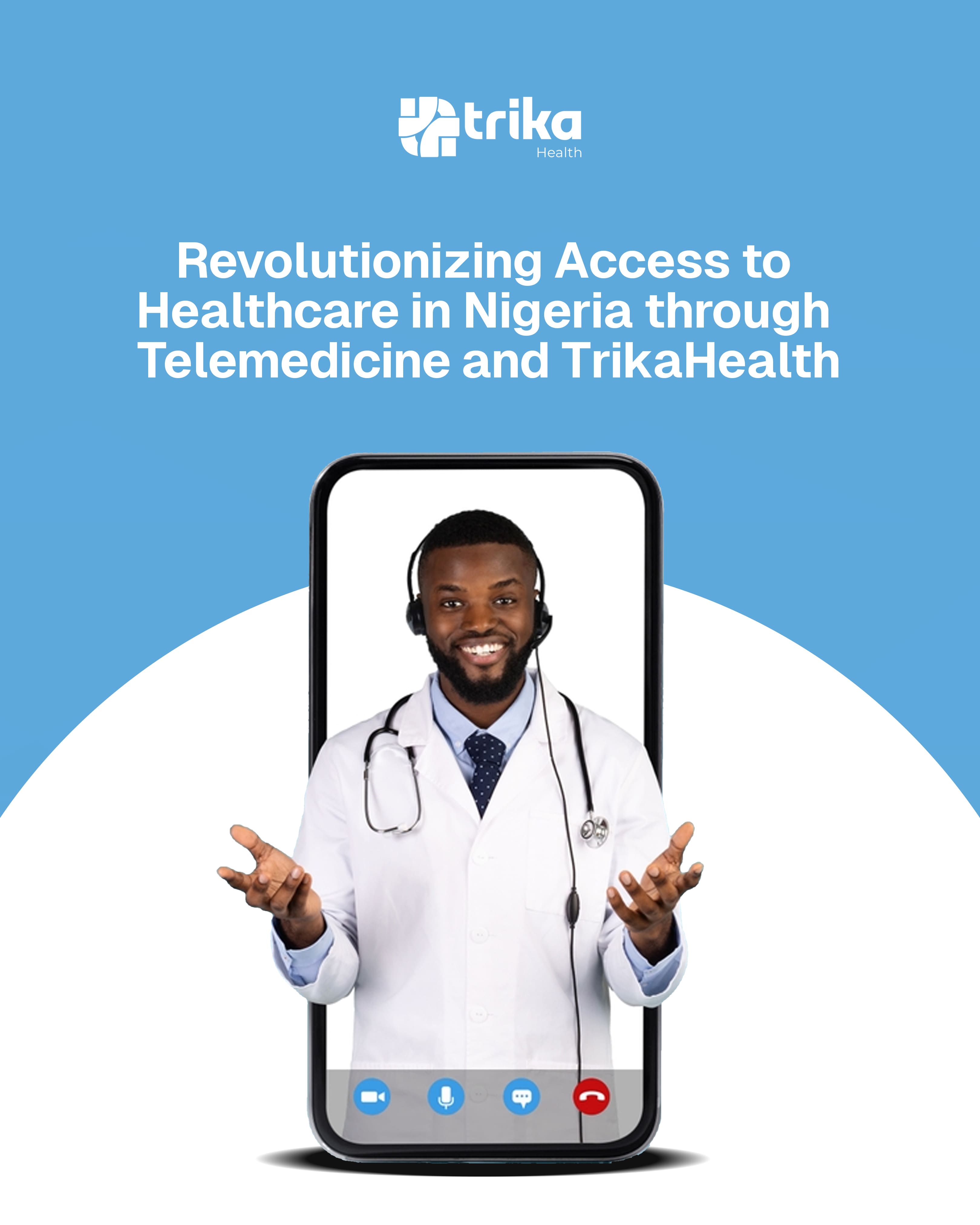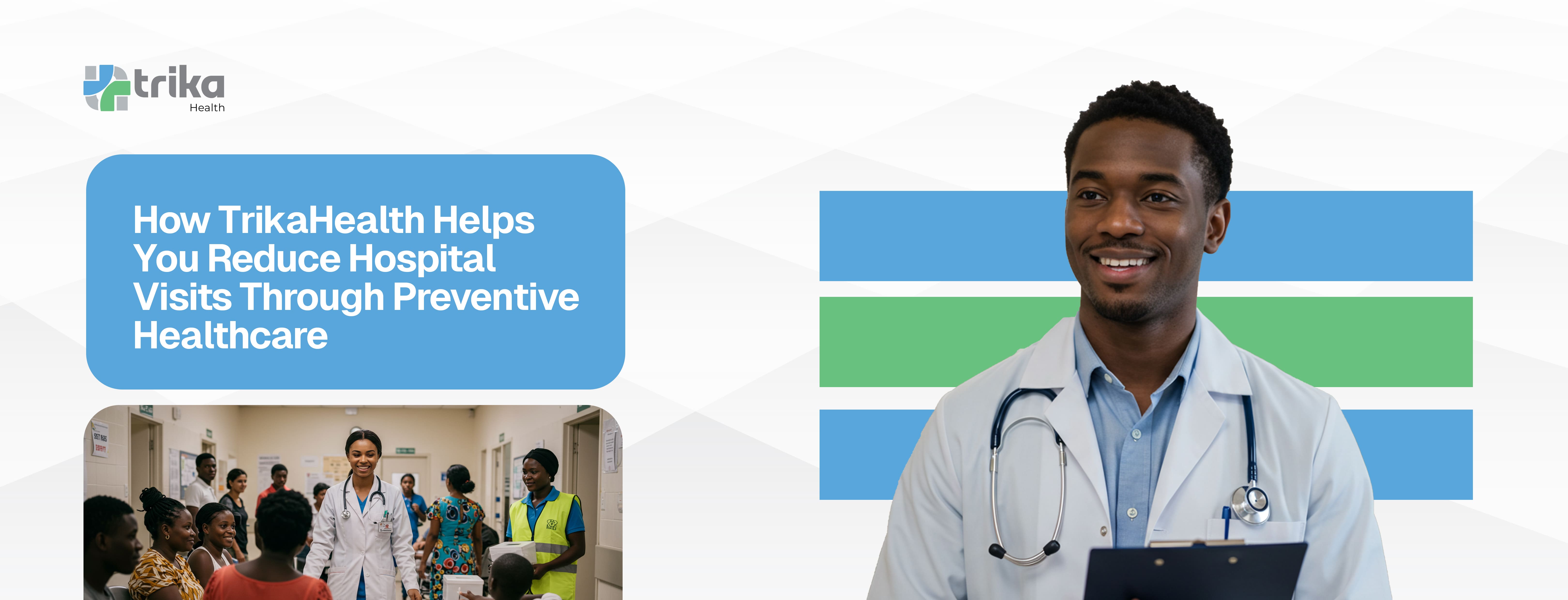
Nigeria’s healthcare system has long struggled with challenges such as inadequate medical infrastructure, a shortage of healthcare professionals, and accessibility issues, particularly in rural areas. Millions of Nigerians face difficulties in receiving timely and quality healthcare due to long hospital wait times, high medical costs, and a lack of medical facilities in underserved regions. However, the rise of telemedicine is beginning to change the narrative by bridging the gap between patients and healthcare providers, making medical consultations more accessible and efficient.
Telemedicine, the remote diagnosis and treatment of patients via digital platforms, is revolutionizing the Nigerian healthcare sector by leveraging technology to provide on-demand consultations, virtual diagnosis, and remote health monitoring. Companies like TrikaHealth are at the forefront of this digital transformation, ensuring that Nigerians can access affordable and high-quality healthcare services from the comfort of their homes.
This article explores how telemedicine is reshaping healthcare in Nigeria, the benefits it offers, the challenges it faces, and how TrikaHealth is leading the charge in delivering innovative digital healthcare solutions.
The Growing Need for Telemedicine in Nigeria
Nigeria has one of the lowest doctor-to-patient ratios in the world, with only four doctors per 10,000 people, far below the World Health Organization’s recommended standard. This severe shortage of medical professionals means that hospitals and clinics are often overcrowded, leading to long wait times and delayed treatments.
Other key factors driving the adoption of telemedicine in Nigeria include:
- Urban-Rural Healthcare Disparities: While urban centers like Lagos and Abuja have relatively better healthcare facilities, rural areas suffer from inadequate medical infrastructure. Many people in remote areas must travel long distances to receive medical care, which is both costly and time-consuming.
- Rising Healthcare Costs: Traditional healthcare services can be expensive, particularly for those without health insurance. Telemedicine provides a cost-effective alternative by eliminating transportation costs and reducing hospital visits.
- Increase in Internet and Smartphone Penetration: With over 109 million internet users and increasing smartphone adoption, Nigerians now have the digital tools to access healthcare services online. Telemedicine platforms like TrikaHealth utilize these advancements to connect patients with certified doctors in real time.
- Pandemic-Induced Shift in Healthcare Delivery: The COVID-19 pandemic exposed vulnerabilities in Nigeria’s healthcare system, accelerating the shift towards virtual healthcare services. Many patients and healthcare providers have since recognized the convenience and efficiency of telemedicine.
How Telemedicine is Transforming Healthcare in Nigeria
1. Instant Access to Medical Consultations
Traditionally, seeking medical attention in Nigeria requires booking appointments, enduring long hospital queues, and dealing with administrative bottlenecks. Telemedicine eliminates these inefficiencies by offering on-demand video consultations with certified doctors.
With TrikaHealth, patients can:
- Schedule video consultations within minutes.
- Receive professional medical advice without leaving their homes.
- Get prescriptions, referrals, and medical reports digitally.
This level of accessibility ensures that patients receive timely interventions, preventing minor health issues from escalating into severe conditions.
2. Remote Health Monitoring and AI-Driven Diagnostics
One of the major innovations in telemedicine is AI-powered health monitoring. Platforms like TrikaHealth integrate artificial intelligence to:
- Analyze patient symptoms and provide preliminary health assessments.
- Detects potential health risks based on historical patient data.
- Offer personalized health recommendations based on user behavior.
For patients with chronic conditions such as hypertension and diabetes, TrikaHealth enables remote monitoring, allowing doctors to track vital signs and adjust treatment plans accordingly.
3. Reducing the Burden on Hospitals and Clinics
Nigeria’s healthcare facilities are often overwhelmed with patients, leading to inefficient service delivery. Telemedicine alleviates this burden by handling non-emergency cases remotely.
By digitizing routine check-ups, follow-ups, and consultations, hospitals can:
- Focus more on critical and emergency cases.
- Reduce overcrowding and long wait times.
- Optimize healthcare resource allocation.
4. Making Healthcare More Affordable
A major barrier to quality healthcare in Nigeria is affordability. Many Nigerians lack health insurance and struggle with high out-of-pocket medical expenses. Telemedicine significantly reduces costs by:
- Eliminating transportation and hospital visit fees.
- Offering subscription-based or pay-per-use consultation models.
- Providing discounted digital health plans through platforms like TrikaHealth.
For instance, TrikaHealth offers budget-friendly telemedicine services that give Nigerians access to 24/7 medical consultations at a fraction of the cost of traditional hospital visits.
5. Access to a Wider Network of Specialists
Specialist consultations in Nigeria are often limited due to a lack of professionals in certain medical fields. Telemedicine breaks geographical barriers by connecting patients with top specialists across the country and even internationally.
TrikaHealth ensures that patients receive expert opinions from specialists in:
- Cardiology
- Dermatology
- Pediatrics
- Mental health counseling
- Gynecology
This democratization of healthcare ensures that even those in remote areas can access the best medical expertise without traveling long distances.
TrikaHealth: Pioneering the Future of Telemedicine in Nigeria
TrikaHealth is a leading digital health platform in Nigeria, offering a comprehensive telemedicine ecosystem that includes:
- Instant Video Consultations: Users can connect with certified doctors 24/7 for real-time consultations.
- AI-Powered Health Management: Smart diagnostics and symptom checkers help patients receive personalized healthcare solutions.
- Diagnostics & Lab Tests with Home Sample Collection: TrikaHealth partners with accredited labs to collect samples from patients' homes and deliver results digitally.
- Prescription & Medication Delivery: Patients can order medications online and have them delivered to their doorsteps.
- Hospital Management Information System (HMIS) – TrikaHealth integrates with hospitals to streamline patient records, automate appointments, and manage inventory efficiently.
Through these services, TrikaHealth is not just providing telemedicine, it is building a fully integrated digital healthcare system designed to meet Nigeria’s unique healthcare challenges.
Challenges Facing Telemedicine Adoption in Nigeria
Despite the promising impact of telemedicine, several challenges remain:
- Limited Internet Access in Rural Areas: Many Nigerians still lack stable internet connections, making it difficult to access telemedicine services.
- Trust and Digital Literacy Issues: Some patients lack confidence in online consultations, preferring physical visits due to familiarity.
- Regulatory and Legal Frameworks: The Nigerian government is still developing policies around telemedicine, with concerns about patient privacy and data security.
- Integration with Traditional Healthcare Systems: Many hospitals still operate manually, making it difficult to sync patient records with telemedicine platforms.
TrikaHealth is tackling these challenges by:
- Expanding network partnerships to improve connectivity in underserved areas.
- Educating users through awareness campaigns about the benefits of digital healthcare.
- Complying with global health data regulations to ensure patient privacy and security.
The Future of Telemedicine in Nigeria
The future of telemedicine in Nigeria looks promising as technology continues to evolve. Key trends shaping the future include:
- 5G and Enhanced Connectivity: Faster internet speeds will make telemedicine more reliable and accessible.
- Blockchain for Secure Patient Records: Ensuring tamper-proof and encrypted medical data.
- AI-Powered Predictive Healthcare: Using machine learning to forecast disease patterns and recommend preventive measures.
- Telemedicine Integration into Health Insurance: More HMOs and insurance providers are expected to cover virtual consultations.
Conclusion
Telemedicine is undeniably transforming Nigeria’s healthcare landscape, making healthcare more accessible, affordable, and efficient. With platforms like TrikaHealth, millions of Nigerians can now consult doctors instantly, receive personalized health recommendations, and access quality medical services remotely.
Despite existing challenges, the rise of telemedicine marks a pivotal shift toward a smarter, more inclusive healthcare system. As technology advances, telemedicine will play an even greater role in shaping the future of healthcare in Nigeria, ensuring that no one is left behind in the digital health revolution.


